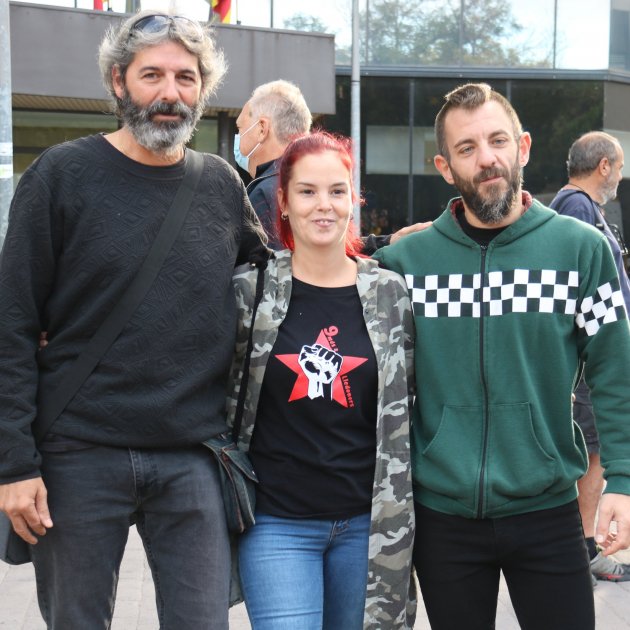The judge of Spain's National Audience, Manuel García Castellón, has closed the investigation into 12 members of the pro-independence Committee for the Defence of the Republic (CDR) groups accused of terrorism charges arising from the 2019 Civil Guard raid in Catalonia baptized as Operation Judas. The judge has now sent the case to the criminal division of the same court to decide whether to open a trial against those prosecuted for crimes of belonging to a terrorist organization and possessing and manufacturing explosives. The first charge entails prison sentences of between six and twelve years while the second, from eight to fifteen years. It is the second time that the investigation has been concluded because those under investigation requested that more evidence be looked into. This long case began in spectacular fashion, with a 500-officer Civil Guard operation and Spanish media headlines connecting the independence movement with terrorism, just days before the Supreme Court's sentences for the Catalan leaders' trial. Later, the initially-leaked "evidence" shrank into claims about precursors for making explosives and the suspects were quietly released on bail. But the case went on, with parts of it being conducted confidentially so that not even the lawyers had access to parts of the files.
The court resolution sent this Thursday afternoon states that the investigation was previously closed in October 2022, but the court sent it back after accepting the appeal filed by one of the defendants. In the appeal, a defence lawyer requested that the investigation be extended so that further investigations could be carried out, taking into account the high penalties involved in the crimes in question.
"Once the proceedings that were considered necessary and useful for the clarification of the facts were carried out (...) it is appropriate to issue a summary resolution concluding that the investigation has fulfilled its purpose". With these words and, after the three months of extra investigation dictated, García Castellón now closes the file definitively, sends it to the criminal chamber judge, who will has to decide, taking into account the argument in the investigative summary, whether the pro-independence defendants will be sent to trial.
Lawyers' constant complaints against judge
The final part of the investigation turned into a tug-of-war between the parties involved in the court process. The defence lawyers for the majority of the pro-independence activists, led by the Alerta Solidària legal collective, repeatedly denounced that García Castellón was creating obstacles for them and that they were having problems getting access to all the investigative actions that were part of the case. In fact, when the judge closed the summary for the first time, Alerta Solidària complained about the judge's "irrational" decision in the face of "the huge amount of information" relating to requested evidence that had been rejected. "The judge wants to hide an irregular investigation against the Catalan independence movement", asserted the lawyers.
The investigating judge initially prosecuted 13 members of the CDR considering that they were part of a so-called Tactical Response Team (ERT), an alleged cell made up of a radicalized core that, in his opinion, shared ideological principles favourable to Catalan independence. In his opinion, their ultimate goal as an organization was to achieve the independence of Catalonia using violence in its maximum expression.
At first, the investigation was directed against thirteen people: Eduard Garzón, Esther Garcia, Sònia Pascual, Queralt Casoliva, Germinal Tomàs, Alexis Codina, Jordi Ros, Rafael Delgado, Ferran Jolis, David Budria, Clara Borrero, Xavier Buigas and Xavier Duch. However, the judge closed the file against the last mentioned - Xavier Duch - for health reasons.
500-officer arrest operation
This long case began in spectacular fashion in September 2019, with a 500-officer police operation and Spanish media headlines linking the Catalan independence movement with terrorism, just days before the Supreme Court's sentences for the 2017 referendum leaders' trial were expected. Several of those arrested spent months in prison, accused of wanting to barricade the Catalan Parliament if president Puigdemont arrived from abroad, or of devising a way of sabotaging electricity lines, but the explosives that it was claimed they had in their possession, were in the end only "precursors" - materials that could be used in their manufacture, according to the experts. The prisoners were released on bail, but the case continued.
